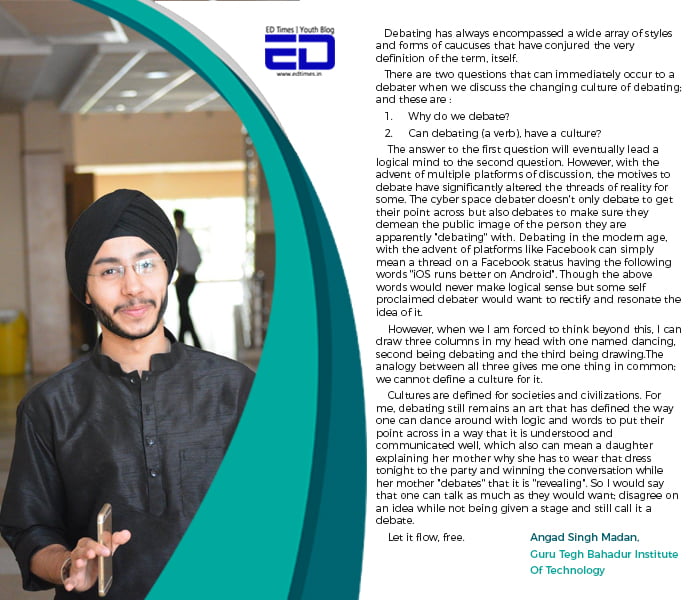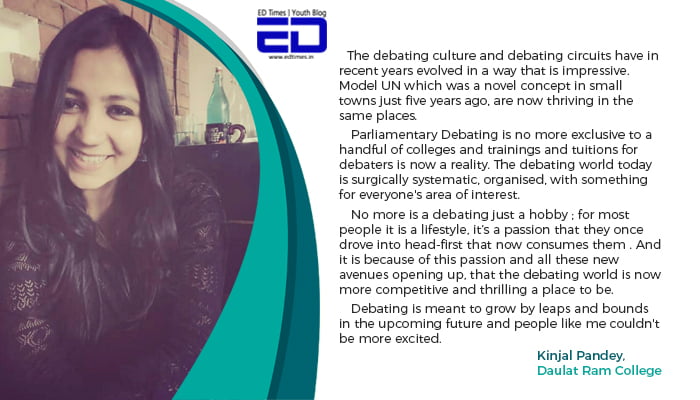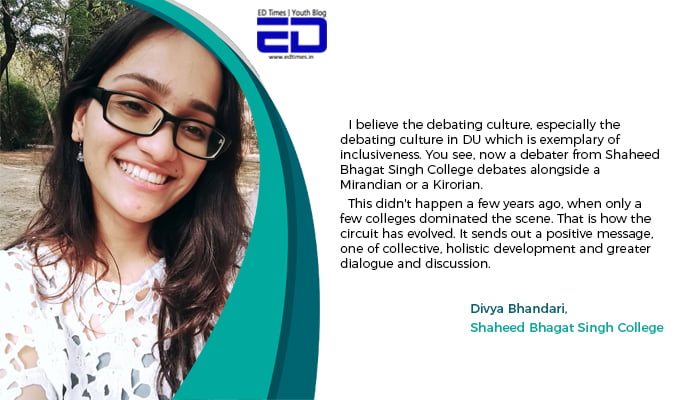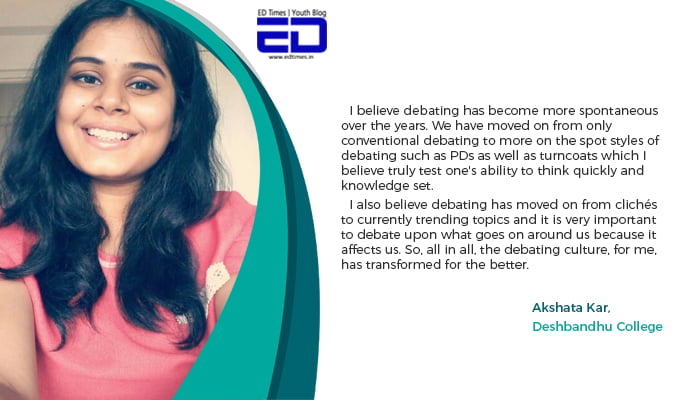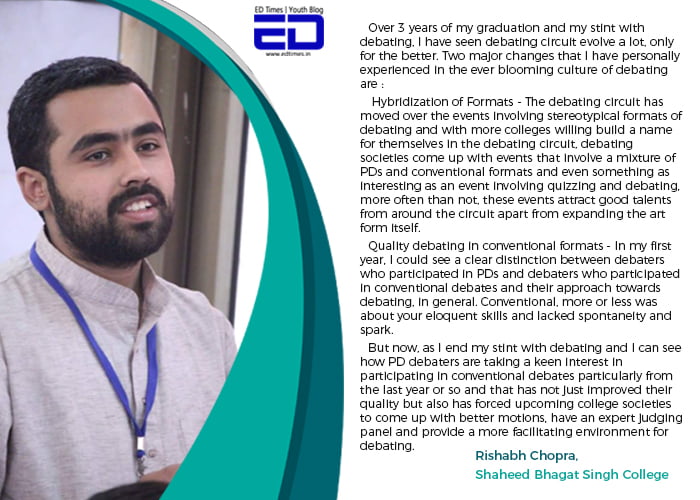Debating has changed. And this is a change which coincidentally has its own pro-con analysis.
We’ve come way too far in the debating circuit where most of us started off as conventional debaters in schools, trying to be as eloquent as possible with a startlingly crisp accent to accompany some astute philosophical quotations in our arguments.
And today we stand as the harbingers of a movement which has revolutionized procedural form of debate, be it in the name of Parliamentary debates or MUNs (Model UNs) and Youth Parliaments.
But the aesthetic value and culture associated with debating remains a matter of discussion. Has it changed? Has it evolved? Has it grown? Has it declined? Does a debating culture even exist?
To answer these questions, we asked some of the newbies and top dogs of various debate formats (primarily conventional, parliamentary and MUN-ing) a simple question for our VoxPop:
“HOW DO YOU FEEL THE DEBATING CULTURE HAS CHANGED IN THE DEBATING CIRCUIT?”
Following were the responses we received from various esteemed debaters:


So, you see. The responses from these individuals do signify to an extent that even though the formats have changed, the culture does remain the same, more or less.
But on the other hand, they also signify as to how debating is constantly growing in terms of its reception from being a mere leisurely activity to being more competitive and how it’s becoming more spontaneous and rhetoric oriented, much owed to the amalgamation of the parliamentary and conventional debating platforms.
Also Check Out: Want To Go For Debates But You’re Hesitant? Here Are 7 Steps To Keep In Mind If You’re A Fresher At College Debates
AUTHOR’S TAKE:
Now as much as I’d like to analyze this question, the article isn’t about me so I’ll try to keep it short.
Personally, I believe the idea of an inherent culture of debating is very inconsistent if you look at it, which makes it problematic for amateur debaters in school to compete with the big boys at college tournaments.
Yes, there is a diversity of platforms and styles but what’s essential is the idea of growth through an activity before letting it ascend to a pedestal where it becomes competitive. Which is why an inherent culture should be
Which is why an inherent culture should be instilled in schoolers from an early age to make sure they transform into good debaters and not just good orators in their collegiate years.
On that note, I’d like to rest my case. Haha.
Cheers.
You’d Also Like To Read:
http://edtimes.in/2017/03/we-asked-college-kids-about-the-role-of-college-societies-this-is-what-they-said-ed-voxpop/




























